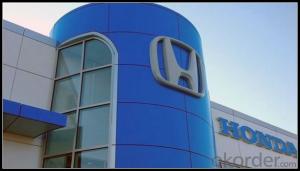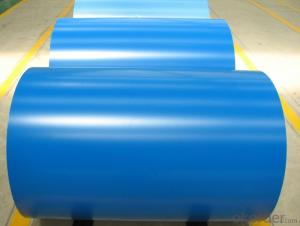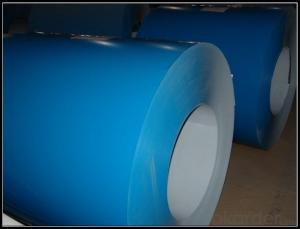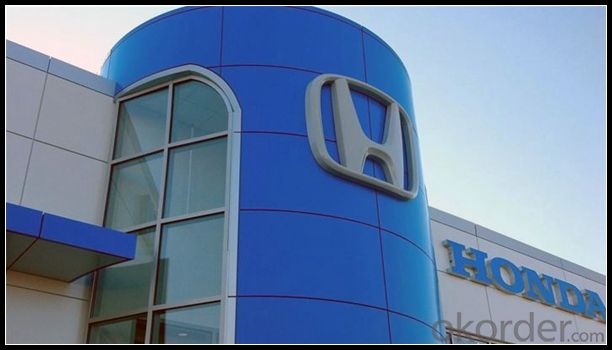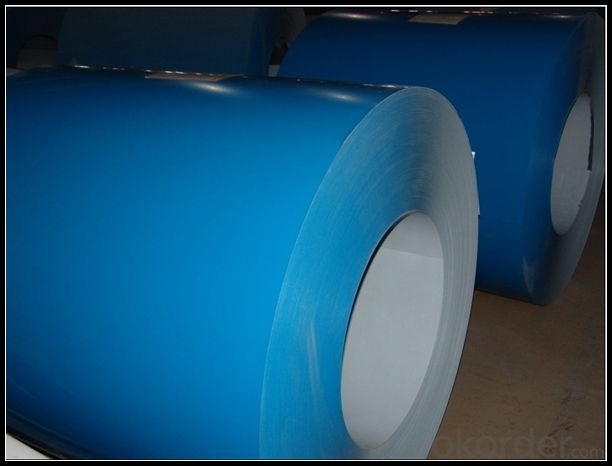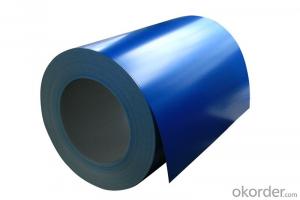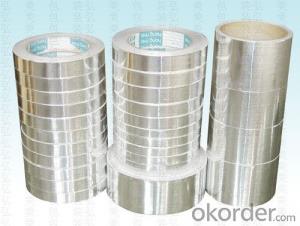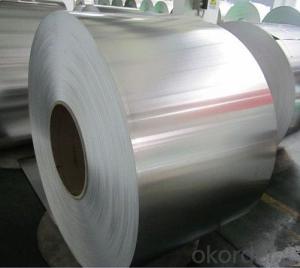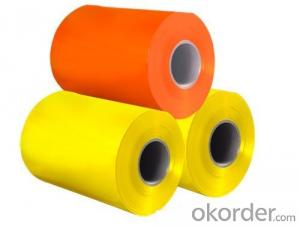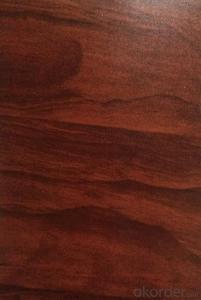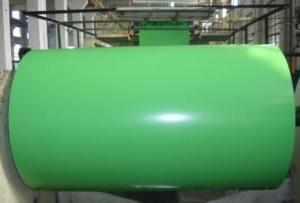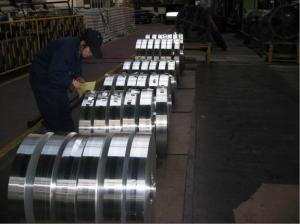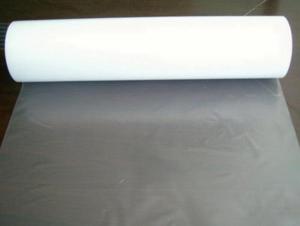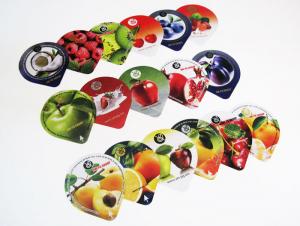Aluminum PE Coated Aluminum Coils for Automotive Industry
- Loading Port:
- Shanghai
- Payment Terms:
- TT OR LC
- Min Order Qty:
- 5 m.t.
- Supply Capability:
- 1000 m.t./month
OKorder Service Pledge
OKorder Financial Service
You Might Also Like
Specification
1. Structure of PE Coated Aluminium Coils for Automotive Industry Description
PE Coated Aluminium Coils for Automotive Industry is one semi-finished aluminium material. This coil can be rolled down to aluminium coil,sheet,circle ect. The alloy AA1050 is widly used in building, industry ect. Its weight is much lower than steel. So many customers choosed aluminium material instead of steel.
2. Specification of PE Coated Aluminium Coils for Automotive Industry
PE Coated Aluminium Coils for Automotive Industry | |
Main Specification | |
Alloy | AA1xxx (AA1050, AA1060, AA1070, AA1100 etc.) |
AA3xxx (AA3003, AA3004, AA3005, AA3105 etc.) | |
AA5xxx, AA6XXX (AA5052,AA5083, AA5754, AA6061, AA6062 etc.) | |
AA8xxx(AA8011, AA8006 etc.) | |
Temper | H14,H16, H18, H22, H24, H26, H32,O/F, T4, T6, T651 |
Thickmess | 0.01mm-100mm |
Width | 30mm-1700mm |
Standard | GB/T 3880-2006/ASTM |
Special specification is available on customer's requirement | |
3. Application of PE Coated Aluminium Coils for Automotive Industry
(1).Interior: wall cladding, ceilings, bathrooms, kitchens and balconies, shutters, doors...
(2).Exterior: wall cladding, facades, roofing, canopies, tunnels,column covers , renovations...
(3).Advertisement: display platforms, signboards, fascia, shop fronts...
4. Feature of PE Coated Aluminium Coils for Automotive Industry
Surfact Quality :
Be free from Oil Stain, Dent, Inclusion, Scratches, Stain, Oxide Dicoloration, Breaks, Corrosion, Roll Marks, Dirt Streaks and other defect which will interfere with use,
Mechenical Property:
Chemical Composite and Mechanical Property
5. Certificate of PE Coated Aluminium Coils for Automotive Industry
SGS and ROHS(if client request, paid by client), MTC(plant provided), Certificate of Origin(FORM A, FORM E, CO), Bureau Veritas and SGS (if client request, paid by client), CIQS certificate
6. Image of PE Coated Aluminium Coils for Automotive Industry
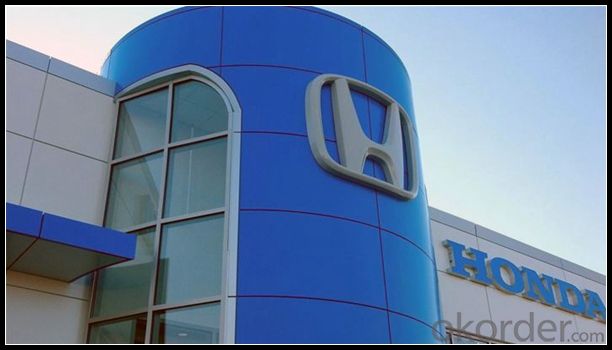
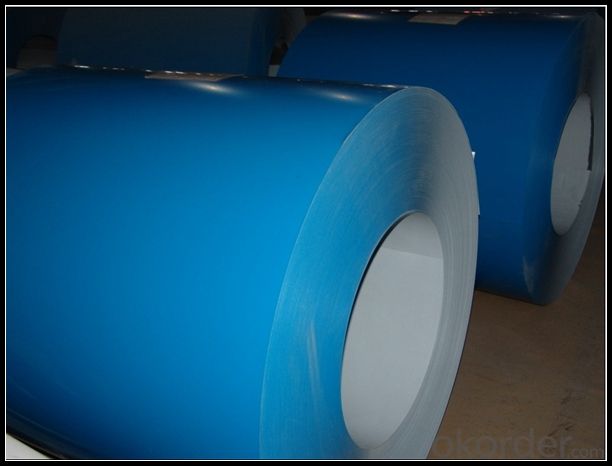
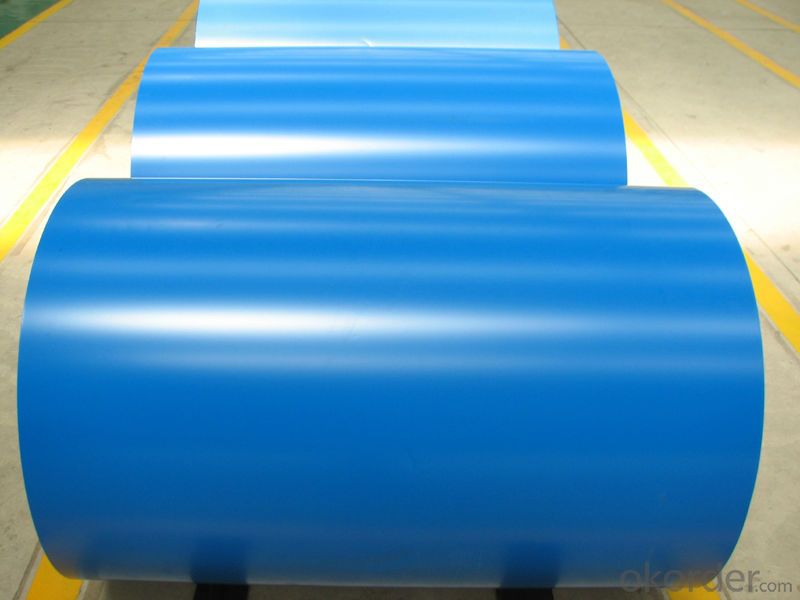
7. Package and shipping of PE Coated Aluminium Coils for Automotive Industry
First, plastic cloth with drying agent inside; Second, Pearl Wool ; Third, wooden cases with dry agent , fumigation wooden pallets, aluminum surface could cover blue PVC film
8. FAQ
1) What is the delivery time?
Depends on actual order, around 20 to 35 days
2) What is the QC system:
We have QC staff of 20 persons and advanced equipment, each production is with MTC traced from Aluminum ingot lot.
3) What market do you mainly sell to?
Australia, America, Asia, Middle East, Western Europe, Africa etc
- Q: This question asks for recent advancements or innovations in the technology related to aluminum.
- <p>Recent developments in aluminum technology include the advancement of aluminum-air batteries for energy storage, which offer a more sustainable and efficient alternative to traditional batteries. There's also the development of nanostructured aluminum alloys that exhibit superior strength and lightweight properties, making them ideal for aerospace and automotive applications. Additionally, research into aluminum recycling has led to more efficient processes, reducing waste and environmental impact. Lastly, advancements in aluminum electrolysis have improved energy efficiency, contributing to the sustainability of aluminum production.</p>
- Q: Is it possible to create jewelry using pure aluminum?
- <p>Yes, pure aluminum can be used to make jewelry, but it's not commonly used for fine jewelry due to its lower value and potential for oxidation. While it is lightweight and affordable, it lacks the luster and durability of precious metals like gold, silver, or platinum. Aluminum can tarnish and may cause allergic reactions in some individuals. It is more commonly used in costume jewelry or for specific designs where its properties are advantageous.</p>
- Q: This question asks about the process through which aluminum deteriorates over time due to environmental factors.
- <p>Aluminum corrodes through a process called oxidation. When exposed to air, aluminum reacts with oxygen to form a thin, protective layer of aluminum oxide on its surface. This layer prevents further corrosion. However, in the presence of moisture, acids, or other corrosive substances, the aluminum oxide layer can break down, leading to further oxidation and eventual pitting or thinning of the aluminum. The rate of corrosion can be influenced by factors such as temperature, humidity, and the presence of impurities in the aluminum. Proper protective measures, such as coatings or anodizing, can help prevent or slow down the corrosion process.</p>
- Q: This question asks for methods to protect aluminum from corrosion.
- <p>Aluminum corrosion can be prevented through several methods. One common approach is anodizing, which involves applying a protective oxide layer to the aluminum surface. This process enhances the metal's resistance to corrosion. Another method is using protective coatings such as paints or enamels that act as a barrier against corrosive elements. Cathodic protection, where aluminum is connected to a more easily corroded metal, can also be used. Additionally, ensuring proper design and avoiding contact with aggressive chemicals can minimize corrosion. Regular maintenance and inspection can help detect and address corrosion issues early.</p>
- Q: Is it possible to use aluminum foil as a substitute for a non-stick surface when cooking eggs in a frying pan?
- <p>While it is technically possible to use aluminum foil to cook eggs in a frying pan, it is not recommended. Aluminum foil can stick to the eggs and make them difficult to remove without breaking. Additionally, aluminum foil can tear or puncture easily, leading to hot oil spills and potential safety hazards. It's better to use a non-stick pan or a well-seasoned cast iron pan for cooking eggs to ensure easy release and even cooking.</p>
- Q: Is it possible to use aluminum as a fuel source?
- <p>Aluminum can be used as a fuel in certain applications, particularly in the form of aluminum powder. It has a high energy density and burns at high temperatures, making it suitable for solid rocket propellants and thermite reactions. However, it is not commonly used as a traditional fuel like gasoline or coal due to its reactivity and the challenges in handling and storage. Aluminum combustion also produces aluminum oxide, which can be harmful to the environment if not managed properly.</p>
- Q: This question asks about the impact of aluminum on human health when it is ingested through food packaged in aluminum containers.
- <p>Aluminum is a common element found in the environment, and it is naturally present in small amounts in many foods. When food is packaged in aluminum, there is a possibility of trace amounts of aluminum leaching into the food, particularly in acidic foods. While the human body can handle small amounts of aluminum without harm, excessive intake over a long period may lead to potential health concerns. Aluminum has been associated with neurological disorders, although the evidence is not conclusive. It's important to note that the risk is generally low, as the body does not absorb a significant amount of aluminum from food or packaging. However, it is always recommended to follow food safety guidelines and use packaging materials that are deemed safe for food contact.</p>
- Q: Describe the reaction between aluminum and oxygen, including the product formed.
- <p>Aluminum reacts with oxygen to form aluminum oxide (Al2O3). This reaction is an oxidation process where aluminum loses electrons and oxygen gains them. The reaction can be represented by the equation: 4Al + 3O2 鈫?2Al2O3. Aluminum oxide forms a protective layer on the surface of aluminum, preventing further oxidation. This property makes aluminum a corrosion-resistant metal, despite its reactivity with oxygen.</p>
- Q: This question asks for a comparison of the benefits and drawbacks of using aluminum as a material in construction projects.
- <p>Aluminum in construction offers several advantages, including its lightweight nature, which reduces structural load and facilitates easier transportation and installation. It is also highly resistant to corrosion, making it ideal for outdoor applications and in areas with harsh weather conditions. Aluminum's recyclability contributes to sustainability, and it has a high strength-to-weight ratio, enhancing structural integrity. However, it has some disadvantages, such as being a poor conductor of heat, which may require additional insulation. It can also be more expensive than traditional materials like steel or concrete, and it dents easily, necessitating careful handling and maintenance.</p>
- Q: Is there a more environmentally friendly method for recycling aluminum?
- <p>Yes, aluminum can be recycled in a more environmentally friendly way. The process of recycling aluminum is already quite efficient, as it requires only 5% of the energy needed to produce new aluminum from raw materials. However, further improvements can be made by optimizing recycling processes, reducing transportation emissions, and increasing the use of recycled aluminum in new products. Additionally, implementing closed-loop recycling systems where aluminum is continuously recycled without loss in quality can minimize waste and environmental impact. Educating consumers about the importance of recycling and improving collection systems can also contribute to more sustainable aluminum recycling practices.</p>
Send your message to us
Aluminum PE Coated Aluminum Coils for Automotive Industry
- Loading Port:
- Shanghai
- Payment Terms:
- TT OR LC
- Min Order Qty:
- 5 m.t.
- Supply Capability:
- 1000 m.t./month
OKorder Service Pledge
OKorder Financial Service
Similar products
Hot products
Hot Searches
Related keywords
